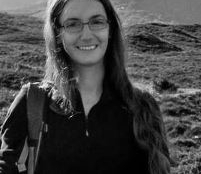PhD defence: Deoxygenation and organic carbon burial in past oceans
 PhD Candidate: Nina Papadomanolaki MSc
PhD Candidate: Nina Papadomanolaki MSc
Defence date: June 24, 2021
Time: 16.15
Institute: Utrecht University
Location: HYBRID (PhD Candidate in Academiegebouw, PhD Dissertation online)
PhD supervisor(s): Professor C.P. Slomp and Professor A. Sluijs
Summary:
Part of the organic carbon produced by phytoplankton in the surface ocean sinks to the seafloor and is buried there. The burial of organic carbon removes carbon dioxide, a greenhouse gas, from the atmosphere and this impacts Earth’s climate. Increased nutrient availability and decreasing oxygen concentrations in the ocean enhance the formation and burial of organic carbon.
In this thesis, I investigate the causes and consequences of ocean deoxygenation and its impact on organic carbon burial during multiple periods of past climate change. I show that warming was critical in driving past periods of low oxygen and enhanced organic carbon burial in the Baltic Sea, suggesting that ongoing global warming may hinder current efforts to restore water quality in the Baltic Sea by reducing the input of nutrients from land. Analyses of ancient marine sediments suggest that ocean warming and acidification accelerate the recycling of the key nutrient phosphorus, further promoting organic carbon burial. However, the scale and severity of deoxygenation does not have to be extreme for a global impact on the carbon cycle, as illustrated by the Paleocene-Eocene Thermal Maximum. The impact of organic carbon burial on the global carbon cycle strongly depends on the rate and mass of greenhouse gas emissions. This research is highly relevant in view of current human-induced changes in the global carbon cycle and shows that organic carbon burial should be considered when assessing the long-term fate of human carbon dioxide emissions to the atmosphere.

